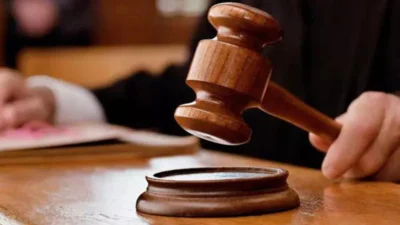Pakistan Military Courts Convict 25 Individuals for Pro-Imran Khan Unrest
0
December 21, 2024
Pakistan Military Courts Convict 25 Individuals for Pro-Imran Khan Unrest
In a landmark judgment, Pakistan's military courts have convicted 25 individuals accused of involvement in the violent unrest that followed the arrest of former Prime Minister Imran Khan earlier this year. The verdict marks a significant development in the country’s political and legal landscape, underscoring the government's determination to hold individuals accountable for their actions during a period of unprecedented political turbulence.
Background of the Unrest
The violence erupted in May after Imran Khan, chairman of the Pakistan Tehreek-e-Insaf (PTI), was arrested on corruption charges. His arrest triggered widespread protests and clashes across the country, with PTI supporters storming government buildings, attacking military installations, and damaging public property. The events led to heightened tensions between the PTI and the government, as well as accusations of heavy-handed tactics against protestors.
The military, seen as a key stakeholder in Pakistan’s political affairs, was targeted by demonstrators, a rare occurrence in the country’s history. Protestors vandalized sensitive installations, including the Lahore Corps Commander’s house and the General Headquarters (GHQ) in Rawalpindi. The unprecedented attacks on military symbols shocked the nation and prompted the authorities to adopt a strict response.
Role of Military Courts
The military courts, reactivated earlier this year, have been tasked with hearing cases related to offenses against military installations and personnel. Critics argue that trying civilians in military courts undermines due process and civilian judicial oversight. However, the government has defended the decision, citing the severity of the attacks and the need to protect national security.
The individuals convicted by the military courts include key PTI activists and alleged instigators of the violence. Charges against them included vandalism, arson, and attacking state property, particularly military facilities. Sentences reportedly range from several years of imprisonment to life terms, although the details remain classified under the Official Secrets Act.
PTI’s Response
The PTI has vehemently denied its involvement in orchestrating the violence, blaming "external forces" and "rogue elements" for the chaos. Party representatives have also criticized the use of military courts, claiming that the trials are politically motivated and intended to crush dissent.
“The convictions are part of a broader crackdown on the PTI,” a spokesperson for the party said. “This is an attempt to silence Imran Khan’s voice and suppress his vision for Pakistan. The people will not accept this injustice.”
PTI supporters have taken to social media to express their outrage, with hashtags like #JusticeForPTI trending on various platforms.
Government’s Stance
The government, led by Prime Minister Anwaar-ul-Haq Kakar, has justified the trials, emphasizing that the state cannot allow attacks on its institutions to go unpunished. Interior Minister Sarfraz Bugti stated, “These individuals not only broke the law but also challenged the sanctity of Pakistan’s armed forces. Their actions were an attack on the state itself. Accountability is necessary to restore order.”
Officials have also argued that the decision to use military courts was made in accordance with the Constitution, which allows such trials under exceptional circumstances.
Human Rights Concerns
The convictions have sparked concern among human rights organizations, both domestically and internationally. Amnesty International and Human Rights Watch have criticized Pakistan’s use of military courts for trying civilians, highlighting issues of transparency and fairness.
“Military courts lack the procedural safeguards of civilian courts,” a Human Rights Watch representative said. “The accused are often denied access to proper legal representation, and the proceedings are shrouded in secrecy. This undermines the rule of law and sets a dangerous precedent.”
What’s Next?
The convictions are likely to intensify political polarization in Pakistan, with the PTI already announcing plans for a renewed protest movement. Meanwhile, legal experts are questioning the implications of these trials on Pakistan's judicial system and democracy.
As Pakistan navigates this tumultuous period, the need for dialogue and reconciliation remains critical. While the convictions may deter future unrest, they also risk deepening divisions in an already fractured political landscape. The coming months will reveal whether this approach ensures stability or exacerbates the country's ongoing political crisis.
Tags











